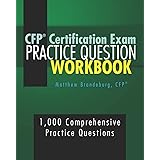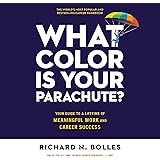Welcome to a deeper dive into mastering your BPO job interview preparation! As highlighted by Bharati in the video above, securing a role in the Business Process Outsourcing (BPO) sector requires more than just showing up. In fact, studies indicate that nearly 70% of job seekers admit to feeling high levels of stress during interviews. This article aims to build upon the valuable insights shared, offering expanded context and practical strategies to help you navigate your BPO interview with confidence and clarity.
The BPO industry is a global powerhouse, projected to reach a market value of over $400 billion by 2027. It offers diverse opportunities, from customer service to IT support, making effective interview preparation key for aspiring professionals. Let’s break down the essential elements for success, ensuring you’re not just prepared, but truly exceptional.
Understanding the BPO Landscape: More Than Just “Outsourcing”
Bharati rightly began by defining BPO as Business Process Outsourcing. But what does that really mean for you as a job seeker? Essentially, BPO involves one company hiring another company to handle specific business operations. This can range from customer service and technical support to data entry, telemarketing, and even finance and accounting. The diversity of roles within BPO is immense, offering a pathway for individuals with various skill sets. For example, a significant portion—around 60-70%—of BPO operations globally focus on customer interaction, which emphasizes the need for strong communication and interpersonal skills.
When you prepare for a BPO interview, it’s beneficial to understand which type of BPO role you’re applying for. Is it a voice process (call center), non-voice (chat/email support), or a back-office operation? This understanding will help you tailor your responses and showcase relevant skills more effectively.
Essential Pillars for Your BPO Interview Success
The foundation of any successful interview, especially in the BPO sector, rests on a few core principles. Let’s expand on Bharati’s excellent advice.
1. Dress to Impress: Projecting Professionalism
The video emphasizes the importance of dressing professionally, and for good reason. Your attire is often the first non-verbal cue an interviewer receives about you. It speaks volumes about your respect for the opportunity and your commitment. For a typical BPO role, this generally means business casual to semi-formal wear. For men, a collared shirt, well-fitted trousers, and polished shoes are usually appropriate. For women, a blouse with tailored trousers or a knee-length skirt, accompanied by professional footwear, works well. Aim for neat, clean clothing, and ensure good personal hygiene. Studies show that a positive first impression can boost an applicant’s chances by up to 25%, making your appearance a critical element in your BPO job interview preparation.
2. Cultivating Confidence: Believe in Yourself
Being confident isn’t about being arrogant; it’s about believing in your abilities and conveying that belief calmly and clearly. This involves maintaining good eye contact, having an open posture (avoiding crossed arms), and speaking with a clear, steady voice. Practice your answers beforehand to feel more comfortable, but don’t memorize them word-for-word. Instead, understand the core points you want to convey. If you’re nervous, taking a few deep breaths before the interview can significantly reduce anxiety, helping you project a more assured demeanor. Interviewers often look for candidates who can handle pressure, and demonstrating composure is a huge plus.
3. Communicate Clearly: Your Voice, Your Advantage
In BPO, especially in voice processes, clear communication is paramount. This means speaking articulately, at a moderate pace, and ensuring your pronunciation is distinct. Avoid slang or overly casual language. If you have a strong regional accent, consider practicing accent neutralization exercises; however, the primary goal is clarity and understandability, not necessarily eliminating your accent entirely. For non-voice processes, clear written communication is equally vital, focusing on grammar, spelling, and conciseness. A common technique for responding to behavioral questions, such as “Tell me about a time you handled a difficult customer,” is the STAR method: Situation, Task, Action, Result. This structured approach helps you deliver a clear, impactful narrative.
4. The Power of Active Listening: Truly Hearing What’s Said
Active listening is a skill that goes beyond just hearing words; it’s about fully understanding, interpreting, and responding to what the other person is communicating. In a BPO context, this is critical for understanding customer needs and interviewer questions. Show you’re listening by nodding occasionally, maintaining eye contact, and briefly paraphrasing what you’ve heard (“So, if I understand correctly, you’re asking about…”). This not only confirms your understanding but also demonstrates empathy and engagement, crucial traits for any client-facing role. Research suggests that employees who excel in active listening are perceived as more competent and trustworthy.
Key Skills to Highlight During Your BPO Interview
Beyond the core interview conduct, certain specific skills are highly valued in the BPO industry. Make sure you can provide examples of how you’ve demonstrated these, even if from non-work experiences like academic projects or volunteer work.
Belief in Teamwork
BPO environments are inherently collaborative. You’ll likely be part of a team working towards common goals, whether it’s achieving customer satisfaction targets or meeting service level agreements. Highlighting your ability to work well with others, resolve conflicts constructively, and contribute to group success is vital. For example, if you participated in a group project, describe your role and how you collaborated effectively to reach the objective.
Professionalism Beyond Appearance
True professionalism encompasses reliability, integrity, and ethical conduct. This includes being punctual, meeting deadlines, maintaining confidentiality, and handling challenging situations with grace. An interviewer wants to know you’ll be a dependable and respectful member of their team. You might share an instance where you took initiative to solve a problem or demonstrated commitment to a task even when faced with obstacles.
Patience: A Virtue in Customer Service
Many BPO roles involve interacting with customers who may be frustrated, confused, or demanding. Patience is key to de-escalating situations, providing thorough assistance, and maintaining a positive attitude under pressure. Think about times you’ve had to explain something complex multiple times, or dealt with a difficult situation calmly. Approximately 80% of customers prioritize experience over price, underscoring why patient and understanding service is a non-negotiable skill.
Good Typing Skills: Precision and Speed
While not every BPO process demands lightning-fast typing, it’s a significant advantage, especially for chat support, data entry, and documentation tasks. Many BPO companies require a minimum typing speed, often around 30-40 Words Per Minute (WPM) with high accuracy. If you’re applying for a role that involves typing, practicing beforehand can give you a considerable edge. Online typing tests can help you assess and improve your speed and accuracy. Even if not explicitly tested, efficient typing means faster service and accurate record-keeping, boosting productivity.
By focusing on these areas and practicing your responses, you’ll be well on your way to acing your BPO job interview preparation. Remember, every interview is a chance to learn and grow, even if it doesn’t result in an immediate offer. Good luck!









